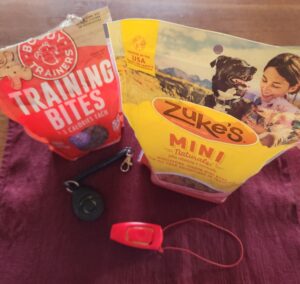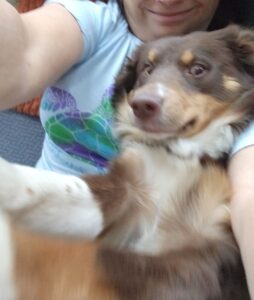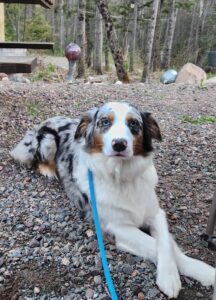Transitioning your puppy to their new home can be a delicate process, and I appreciate your commitment to their well-being. Stress, lack of sleep, and new people can compromise your puppy’s immune system. Please know that nearly all dogs/puppies have parasites. You can kill live parasites with medication, however, dormant eggs lay in the tissues of the host. These eggs are “activated” through stress, a compromised immune system, pregnancy, and sickness or disease. Below are some guidelines to ensure a smooth transition and minimize the risk of “activating” dormant parasites:
- Calm Environment: Keep the house calm and stress-free for the first three days to a week. Limit new visitors, minimize commotion, and handle the puppy gently. To avoid the risk of Parvo, request that shoes be left at the door.
- Allow for Rest: Puppies sleep a lot, and this is normal. Let them rest, and as long as they wake up with energy and playfulness, and maintain a healthy appetite, everything is likely fine.
- Mushy Poop: Stress causes mushy poop. If your puppy’s poop is mushy, feed boiled hamburger or chicken with white rice for three days. You can add a little canned pumpkin if needed or have on hand the recommended dried pumpkin from the puppy shopping list. Transition back to regular dog food gradually over the next 5 days. Additionally, avoid treats, including bones, during the transition period. Stick to the bland diet to avoid upsetting the puppy’s stomach.
- Probiotics: Once the puppy transitions back to regular kibble, add a good probiotic to their food. Purina FortiFlora is a recommended option.
- Water Source: Your puppy was raised on well water, please provide bottled water for the first three days and transition to city water if that is where your supply comes from.
When to be concerned:
- Mucus or Blood in Poop: If the puppy’s poop contains mucus or blood, feed a bland diet for 24 hours. If the issue persists, consult with a veterinarian.
- Lethargy or Refusal to Eat: If the puppy is lethargic, lacks energy, or refuses to eat, seek veterinary advice.
- Blockage Symptoms: If the puppy cannot poop and is vomiting, it might indicate a blockage. This requires immediate veterinary care.
- Persistent Liquid Poop: If the puppy has persistent liquid poop and is at risk of dehydration, consult a veterinarian promptly.
I hope these guidelines make the transition smoother for your puppy. Thank you for prioritizing their safety and well-being!








